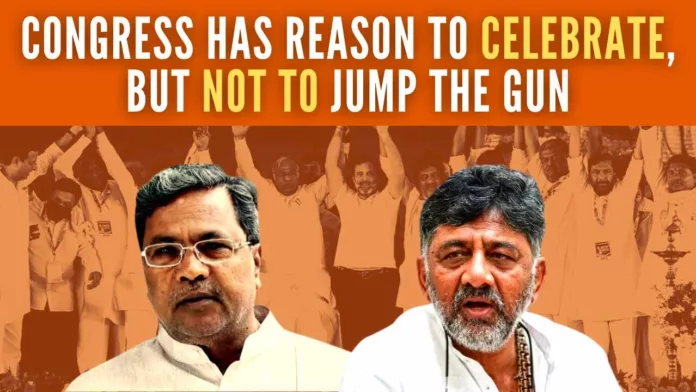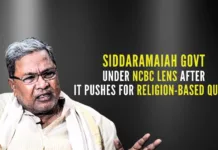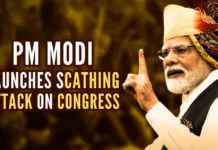
Karnataka’s thumbs up for Congress
The Congress is celebrating, as it should, its emphatic victory in the Karnataka Assembly elections. There is a rush to give credit to Rahul Gandhi, on the argument that his Bharat Jodo Yatra had influenced the voters in the party’s favour. But the fact is, even without that Yatra, the Congress would have triumphed, given the strong anti-incumbency sentiment that prevailed in the state against the Bommai-led government of the BJP.
The fact also is that the win was the handiwork of the duo of Siddaramaiah and D K Shivakumar. The entire Congress campaign led by them was focused on local issues because that was the BJP’s Achilles heel. Additionally, the consolidation of OBC, Scheduled Caste, and the Muslim votes swung the mandate decisively in the Congress party’s favour.
The Congress believes that the victory will give an impetus to opposition unity ahead of the 2024 Lok Sabha elections, and more importantly, place it in a pole position to be the fulcrum of that unity. It also believes that the Karnataka result is a precursor to the 2024 polls. However, the party seems to be jumping the gun on both these counts.
The problem with opposition unity with the Congress party as the core, is two-fold, and none of them has been taken care of by the Congress’s Karnataka victory. The first is that prominent opposition parties, strong in their respective states, are rivals of the Congress party and don’t really need it as a prop. They have no reason to, therefore, strike an alliance with the national outfit. Efforts of leaders such as Nitish Kumar to forge a broad-based opposition alliance have not yielded results until now.
More recently, Nitish Kumar had reached out to Naveen Patnaik, the Chief Minister of Odisha. He had gone to Odisha and was served lunch by Patnaik, but that is about all the positive things he returned with. Patnaik categorically denied having discussed opposition unity with Nitish Kumar. Although Patnaik’s party is technically an opponent of the BJP, it has not, unlike those like Mamata Banerjee’s TMC, Akhilesh Yadav’s Samajwadi Party or Tejashwi Yadav’s RJD, gone the whole length in opposing the party at the centre.
The second is that of leadership; no opposition party barring a few is willing to accept Rahul Gandhi as its alliance leader. While the Congress has been quick to give Rahul Gandhi credit for the Karnataka victory, opposition party leaders know better.
As regards the 2024 general elections, we have seen on previous occasions that a win in the Assembly polls is no certain indication of the victor doing well in the Lok Sabha elections. The Congress won the 2018 Assembly elections in Madhya Pradesh and Rajasthan, but in the general elections held less than six months later, the party was trounced, with the BJP sweeping the seats in the two states.
And, for the sake of argument, if Assembly elections are an indication of a national outcome, the Congress was comprehensively beaten in last year’s polls in Gujarat. Also, again for the sake of argument, let’s agree that Assembly election results can influence the outcome of the Lok Sabha polls. Both Madhya Pradesh and Rajasthan will go to polls for the Assembly later this year. There is every possibility of the party losing in both.
In Madhya Pradesh, the BJP government of Shivraj Singh Chouhan has performed well and it has strong leaders, both in the state and at the centre (Jyotiraditya Scindia) to boost its image. In Rajasthan, the Congress is wracked by internal battles between the Ashok Gehlot camp and the Rajesh Pilot camps. The fight is out in the open and the party has been considerably weakened as a consequence, with the high command failing to quell the rebellion. If Congress loses the two states, will it still maintain that those Assembly poll results will reflect on the general election outcome?
Returning to Karnataka, the BJP has to understand and introspect on a few things. The first is that the charisma of Prime Minister Narendra Modi is an add-on factor. If the local BJP leadership is perceived to have colossally failed, Modi can only do this much and not more. It can be argued that, but for his campaign blitz in the last ten days of polling, the BJP might have ended up in a worse position.
The second is that state elections are fought on state issues and the introduction of national matters can work only if the national issue is of paramount importance — a retaliatory attack on an enemy country, for instance. On local governance, the Bommai government was seen to have been a failure; whether it was the right perception or wrong, is now immaterial.
The BJP must also ponder over why a considerable chunk of its core vote bank, the Lingayats, moved away to the Congress in this election. The situation is comparable to the 2017 Gujarat Assembly elections, where a section of the Patels, the BJP’s traditional voters, had gone over to the Congress, with Hardik Patel leading the Patel agitation. The BJP subsequently managed the issue well and in the 2022 elections, registered a historic victory in the Assembly elections. The party has to go back to the drawing board and find ways to win over the Lingayats — and also make inroads in the Vokkaliga votes.
Amidst the gloom, there are, however, some bright spots, which the BJP can take as a consolation. The party did well in Bengaluru and in urban parts of the state. It held on to its bastion of coastal Karnataka. And, in what must have delighted the party, it was able to defeat Jagadish Shettar, the man who had ditched the party after being denied a ticket, crossed over to the Congress, and contested on its ticket. Shettar is no ordinary leader; he was the BJP’s chief minister of the state.
The Karnataka elections were supposed to be a triangular fight. In a sense, they were, but the poor show put up by the JD(S), effectively made the contest bipolar — between the Congress party and the BJP. Had the JD(S) done well (attracting large sections of the Congress votes), the BJP might have improved its tally and would have had a shot at forming the government in alliance with the JD(S).
Note:
1. Text in Blue points to additional data on the topic.
2. The views expressed here are those of the author and do not necessarily represent or reflect the views of PGurus.
PGurus is now on Telegram. Click here to join our channel and stay updated with all the latest news and views
For all the latest updates, download PGurus App.










